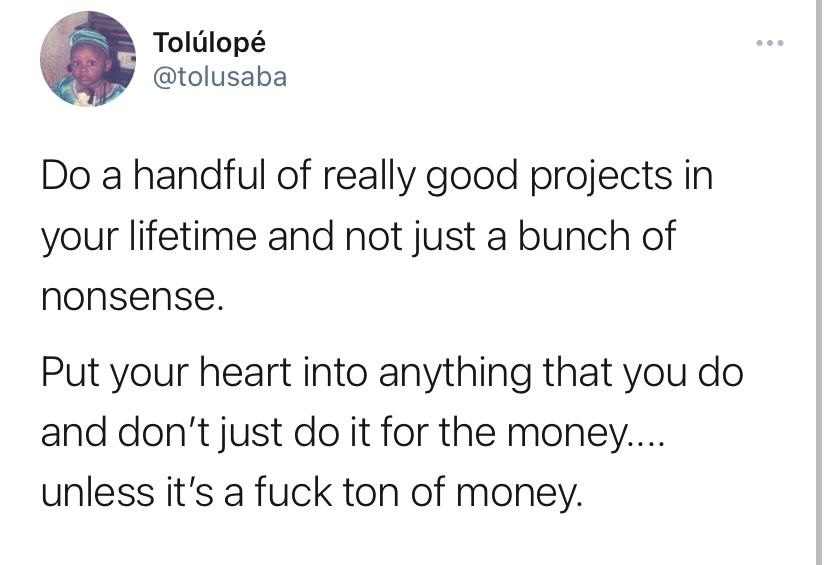
If showing up at work and doing the bare minimum doesn't make you discontent, I envy you. But I don't want to be like you. I don't want other people to want to be like you.
In the last decade, conversations about the workplace impacting people's propensity for happiness has become more prominent. This makes a lot of sense, seeing that most people spend about 25 to 30 years working. Many people have argued that an employee's quality of work is subject to their workplace happiness index. Simply put, an employee's terrible quality of work may be because they are unhappy at work. Research supports this. But it shouldn't be an excuse for consistently putting out substandard work.
You are working for yourself, not your employer.
It's funny how people are quick to use the phrase 'It's not my company' as an excuse to be mediocre. Most people just want to show up at work, get their pay for the day, and leave. There is nothing wrong with going to work just to get paid. But the problem arises when you become comfortable with putting out sub-par work and getting paid for it.
If every time you take on a project, a role, or a task, you approach it with a mindset that the work is more important for you than the person you're doing it for, you are more likely to achieve excellence in that work, role, or project. Every minute you spend at work is you building your resume. A job well done creates an impressionable resume for your future employer. No matter how terrible and toxic your workplace is, your future employer will not hire you out of pity when you leave. They'll hire you based on what you were able to achieve despite your work environment. The next time you show up at work, give it a 100. You need it more than your employer.
Do a handful of really good projects in your lifetime and not just a bunch of nonsense.
I chuckled when I first read Tolusaba's tweet because I had a similar conversation with a colleague in late 2020. Living in an environment where most of your peers are either unemployed or underpaid, it can be challenging to cherry-pick when it comes to jobs. But if you have a luxury, you should take on jobs and projects that you'd be proud to be a part of. Regardless of where you find yourself, do good work, put your heart into it, and move on when the opportunity arises.
Put your heart into anything that you do, and don't just do it for the money.... unless it's a fuck ton of money.
When we say that someone is in it just for the money, we aren't descriptive. We are judging the person. But what is wrong with being in it solely for the money?
The father of the industrial revolution, Adam Smith, was convinced that human beings by their very nature were lazy and wouldn't do anything unless you made it worth their while, and the only way you made it worth their while was by incentivizing. Scholars have described this hypothesis as a false view of human nature. But is it really false?
If you don't care about making an impact, building unique products, and all that 'good stuff', it's okay. If all you care about is doing your job to the best of your ability without going the extra mile, fine. But make sure you make a lot of money, because it's easier that way.
To learn more about giving a 100 at work, and similar tips on career growth, subscribe to the CareerBuddy mailing list.
